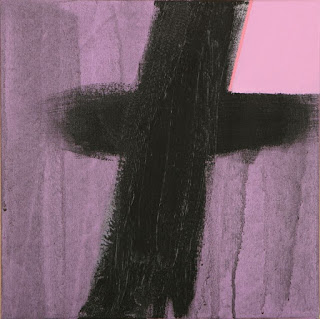The Preacher’s Study
Ash Wednesday, Year C
John
W.B. Hill
Joel
2.1-2, 12-17 or Isaiah 58.1-12;
Psalm
103.8-18;
Psalm 51.1-17;
2 Cor. 5.20b
– 6.10;
Matt. 6.1-6,
16-21
The Gospel readings for Year C in ‘ordinary time’
(which includes the Sundays after Epiphany as well as the Sundays after
Pentecost) are sequential selections from Luke’s version of the story. In Lent, however, the selection of Gospel
readings reflects the special agenda of the season. The first Sunday of Lent is a good example:
the story of Jesus’ temptations in the wilderness is the inevitable aftermath
of his Baptism (which we celebrated some weeks ago on the first Sunday after
the Epiphany).
So it is worth keeping Lent’s special agenda in mind
as we prepare to preach. Lent originated
as a season of testing for those preparing for baptism — testing whether they
had the will to do the will of God — and candidates for baptism would be
enrolled for this testing on the first Sunday of Lent. The Gospel readings during Lent reveal how
Jesus’ own commitment to do the will of his Father was tested by people’s resistance to him (including resistance
from his own disciples!)
But Lent also became a season of testing for those who
had compromised their allegiance to Christ but were now seeking reconciliation
with the company of disciples. They too
would be tested for their will to do the will of God; and they would be
enrolled for this testing on Ash Wednesday.
The sign that marked their path to reconciliation was the sign of the cross
which they had received in baptism, the sign which they now acknowledged had
turned to ashes.
Today, however, Lent is a time for all Christians to
follow this path to a new reconciliation, for we are all heirs of a profoundly
compromised form of discipleship, our life’s habits scarcely distinguishable
from those of the surrounding culture.
The reading from the prophet Joel addresses precisely this condition.
The Gospel reading from the Sermon on the Mount
(together with the reading from the book of Isaiah, if that is chosen)
addresses our sorry condition on another level: Jesus warns us that our religion itself can be a way of
avoiding the will of God (and the prophet provides some examples of this
phenomenon).
What does it mean, then, to observe a holy Lent? Is cultivating some healthy self-discipline
by fasting, or becoming more pious, or joining a study group an acceptable
substitute for “loosing the bonds of injustice, undoing the thongs of the yoke,
and letting the oppressed go free?” Or
for “sharing our bread with the hungry, bringing the homeless poor into our
house, and clothing the naked” (Isaiah
58)?
Thus the passionate entreaty in the reading from St
Paul: “Be reconciled to God! For our
sake God made him to be sin who knew no sin, so that in him we might become the
righteousness of God.” Our
reconciliation with God consists in learning to follow the way of Jesus.
So what will our lives be like when we are reconciled
to the Lord, who “is full of compassion and mercy, slow to anger and of great
kindness” (Psalm 103)? Will our experience of discipleship begin to
resemble the experience Paul describes (2
Corinthians 6)?
John
W. B. Hill is an Anglican presbyter living in Toronto, Canada. He is a Council
member of APLM, chair of Liturgy Canada, and author of one of the first
Anglican sources for catechumenal practice.



No comments:
Post a Comment